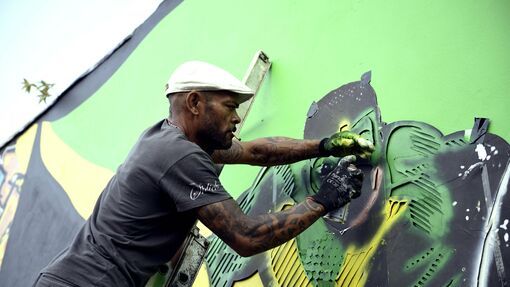Five questions with... Kate Chapman
Posted by:

We caught up with producer and director Kate Chapman to find out how she made her successful application and how the fund will help bring together her work in theatre, audio and radio.
Why did you apply to Developing your Creative Practice?
I wanted to explore new territory as a producer. My new project ‘Off the Tracks’ will help me explore the potential of podcasts as a creative platform for the work of theatre makers and writers. I knew that I needed other people to make that happen and this feels like the right time to make those new connections in a considered and meaningful way.
Having a deadline gave me the opportunity to focus and articulate the changes I wanted to make and helped me sharpen my thinking. I almost talked myself out of applying! But I talked to a number of people about it and the process actually turned out to be the perfect way to focus and orientate myself.
Developing your creative practice is all about making a step-change – what is that change for you?
Like many people who have been working in the arts for a long time, I didn’t start out with a plan. I’ve forged ahead with my career by following my interests and grasping employment opportunities as they arise. This can be exciting and challenging but it also means that there are several different strands of work which develop over the years.
For me, now feels like the time to bring some of those strands together (particularly theatre and audio) and make more meaningful connections between them. One of the things that characterised my experience working in radio was working alongside writers and actors to reimagine theatre shows and plays for a listening audience.
The phenomenal rise of the podcast in the last five years, and the number of theatres now producing them, made me think of the podcast as a performance space which is ripe for interpretation and experimentation, and has a relationship to the live space. As a producer and director, I can’t explore this territory on my own. I need to understand what’s possible, identify partnerships, network with other podcast producers, consider questions of access and understand the options for funding. Making these connections is a step-change for me and hopefully for the writers, performers, live artists, fellow producers and theatre venues I intend to work with. The idea is that a new platform for performance work could emerge from this experiment and that this platform could be a means for the work of theatre artists to reach a wider audience.
How will this development time change the future for you and your work?
Hopefully, this development time will allow me to enter new creative territory and bring the work of theatre artists to listening audiences in new ways. It will give me the opportunity to understand new platforms and technologies but also to respond to recent opportunities such as the BBC podcast commissioning process.
I think one of the main benefits of DYCP (Developing your Creative Practice) is that it gives validation and structure to a phase of exploration and development. We don’t need to ‘have permission’ for this, but very often these crucial phases of research, preparation, discussion and learning slip down the list of priorities and then may never come to fruition.

Without this funding, I might not have taken my ideas seriously – or I would have embarked on a production project without having sufficient technical or contextual knowledge to make it work. I wouldn’t have felt able to approach artists about possible collaboration. But now I can pay some people to spend time on this with me, as well as paying myself, and it has given me the confidence to make connections with creative people I haven’t worked with before. This could open up some really exciting new conversations and challenge me to do things differently.
What excites you most about the learning, development and experimentation process?
What excites me (and slightly scares me) is being out of my comfort zone. I’m looking forward to learning new methods and for my role in the process to be challenged and transformed. Most of all I’m looking forward to talking to people I’ve never met and going to places I’ve never been before.
By the end of the process we hope to have made some scratch recordings or come up with some provocations which we can share with theatre partners in the Midlands, podcast producers and podcast listeners. I am excited about becoming more connected with artists, fellow producers, theatre partners and podcast audiences.
What is the one piece of advice you would give to those applying to DYCP?
I would say – be bold in your thinking and ask yourself ‘where you would like this piece of work to have taken you in five years’ time?’
Find out more
Developing your Creative Practice

Developing your Creative Practice
DYCP supports individuals who are cultural and creative practitioners and want to take time to focus on their creative development.
Article tags
Featured post



















